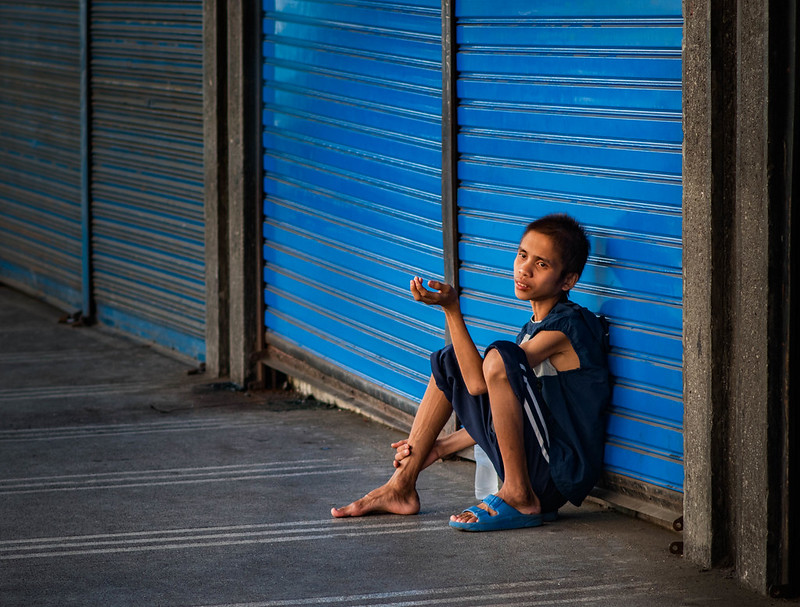While the world experiences a major hunger crisis, the 20 largest food corporations returned $53.5 billion to their shareholders in the past two years.
Davi Martins is senior campaign strategist for biodiversity at Greenpeace International.
Cross-posted from Common Dreams

Imagine being able to provide food, shelter, medicine and clean drinking water for the 230 million most vulnerable people on Earth, and still having a cool $2bn in spare change. That’s the equivalent of the entire economic output of Gambia rattling around in your pocket.
The reason for this unlikely thought experiment is a new analysis showing that 20 of the world’s biggest food corporations – the largest in the grain, fertiliser, meat and dairy sectors – returned a total of $53.5bn to their shareholders in the last two financial years.
To put that into perspective, the UN estimates that it needs $51.5bn to provide life-saving support to 230 million people deemed most at risk worldwide. You get the idea.
What’s more, the corporations ‘earned’ these profits during a period of unprecedented turmoil – a global pandemic and full-scale war in Ukraine – when global supply chains were disrupted and millions of people went hungry.
While readers in wealthier countries may have noticed higher prices for the weekly shop, the impact in developing countries has been devastating. Food prices rose by between 3% and 4.5% in the UK, Canada and the US in the first few months of the pandemic – but by 47% in Venezuela.
The World Food Programme estimates that the number of people facing acute food insecurity more than doubled from 135 million people before the pandemic to 345 million. Countries in the Horn of Africa as well as Afghanistan and Yemen have been particularly badly hit.
Owning the market
So how were 20 companies able to get their hands on this amount of money amid two major crises?
By literally owning the market. The new report from Greenpeace International shows how this small group of companies are able to wield wildly disproportionate control, not only over the supply chains for food itself, but over information about those supplies.
When supply chains were disrupted and food prices rose, the profits rolled in. Cash dividends and shareholder buyback programmes allowed them to transfer an astronomical amount of money to their shareholders, while further amplifying their power over the sector’s industry and governments.
A systemic failure of public policy has allowed a select group to record huge profits, enriching the individuals that own and operate them and transferring wealth to shareholders, most of whom are in the Global North.
Let’s take one example from the report: Russia’s latest invasion of Ukraine last year also resulted in steep price rises for agricultural commodities such as wheat, maize, sunflower oil and some fertilisers, of which Ukraine and Russia are major exporters.
Just four companies – Archer-Daniels Midland, Bunge, Cargill and Dreyfus – control up to 90% of the world’s grain trade. They are under no obligation to disclose what they know about global markets, including their own grain stocks. This lack of transparency means that these companies withhold information that can shape grain prices according to their needs – not even hedge funds can get information except directly from them.
Our report finds that following Russia’s invasion of Ukraine, opacity around the true amounts of grain in storage was a factor in the development of a speculative bubble that led to grain prices rising around the world. In the last two financial years, these four companies paid out a total of $2.7bn in cash dividends, and at least $3.3m in share buybacks, though the true figure is likely much higher because not all of them report on their finances in detail.
If we want to see a world without hunger, the most impactful structural change we can make to the global food system is to bring about food sovereignty. This means policymakers empowering consumers and food producers through policies that benefit local food production, the environment and workers’ rights.
For years, food sovereignty movements have sought to return autonomy to food producers, shortening and strengthening supply chains to reverse the damage done by unsustainable farming. It is not just wishful thinking: from Papua New Guinea to Brazil to Mexico and many other countries, there are deep structural movements working to bring food to everyone’s plate.
But there must also be policies to loosen the grip of corporate control on the global food system – measures such as regulations to ensure greater transparency, an ambitious and sector-wide windfall tax, and significant taxation on dividend payouts as well as on income from dividends.
Achieving zero hunger is the second of the Sustainable Development Goals that UN member states committed to reach by 2030. Recent UN conferences, such as COP27 and COP15, have highlighted industrial agriculture as an important driver of greenhouse gas emissions and biodiversity loss.
It is time for food to be seen as what it is: a basic human need that has to be available to us all, and not another commodity to be exploited and traded for the profit of the few.
Thanks to many generous donors BRAVE NEW EUROPE will be able to continue its work for the rest of 2023 in a reduced form. What we need is a long term solution. So please consider making a monthly recurring donation. It need not be a vast amount as it accumulates in the course of the year. To donate please go HERE.


Be the first to comment